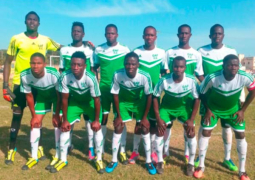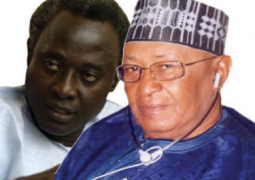
Present at that meeting was Lamin K. Saidy, Youth Coordinator of the Child Protection Alliance (CPA).
In an interview with The Youth Forum, Mr Saidy said the forum was convened by the West Africa Civil Society Forum (WACSOF) with the support of the Ford Foundation with the theme ‘Strategizing to End Early/Child Marriage in West Africa’.
The strategic meeting was attended by representatives from various countries across the sub-region including Nigeria, Sierra Leone, Ghana, Guinea, The Gambia, Guinea Bissau, Cote d’Ivoire, Togo, Benin, Niger, Senegal, Mali, Burkina Faso and Cameroon.
According to him, participants at the meeting also included representatives from the African Union, the ECOWAS Commission for Gender and Human Rights, the ECOWAS Court of Justice, the American and Canadian embassies, the media, among others.
“After exhaustive deliberations, we made a lot of observations and recommendations,” he said
He said it was observed that the debilitating practice of early child marriage across the region is alarming as it progresses year in year out owing to key drivers as economic, social, cultural, religious and customary factors.
The meeting also observed that the West African region is suffering from weak, contradictory and ambiguous legal frameworks on the definition of early/child marriage, and for those with legislations in place, the adequacy of such legislations and their implementation is utterly inadequate.
“The issue of early marriage goes beyond conventions, charters and resolutions and is exacerbated by the lack of true political will by governments, policymakers of ECOWAS member states in tackling the menace,” they observed.
The Abuja meeting further observed that marriages of minors often translate into health hazards such as HIV/AIDS, Vesico-Vaginal Fistula (VVF), malnutrition, infant and maternal mortality owing to limited knowledge and experience.
In their communiqué, participants noted that some countries within the region have made attempts to end early marriage, but the challenges of poverty, misinterpretation of religious texts, inadequate access to education and health facilities, social injustice, etc. have considerably reduced the impact of such efforts.
They however noted the lack of synergy and effective collaboration amongst stakeholders, including the media, has created an information and coordination gap between decision makers, law and policymakers, local leaders, opinion leaders, and change champions.
They recommended among others things that civil society organizations should work with governments in the West African region and development partners towards the adoption of a Regional Code for Child Rights (RCCR), especially early marriage, for a concerted and more effective and permanent eradication of the debilitating practice.
The participants also noted that the governments across the region should as a matter of urgency, abolish all economic, socio-cultural, religious and political practices currently promoting early/child and forced marriages through visible implementation and implantation of holistic policies and empowerment programs.
The forum also tasked the civil society organizations to also direct their advocacy to parliamentarians and policymakers across the region on the need to ratify, domesticate and effectively implement protocols, charters and laws to strengthen existing domestic laws on the girl child.
Such advocacy, they said, should also be directed at law and policymakers at the sub-regional level in the fifteen member countries of ECOWAS.
The issue of the establishment of special protection units and interventions such as social support programmes for victims of early marriages within the member states will emphatically put perpetrators of such acts on the spotlights, participants stressed.
“There is need to deepen the debate by integrating the issue of early marriage into the curriculum of both secondary and tertiary education as a way of raising and sustaining awareness on the problem,” Saidy said.
The participants noted the need to strengthen collaboration between media corporations and Civil Society Organizations across the region towards developing synergy in engaging this social menace until it is eradicated within the region.
“Given the critical role of Media activists who specialize in covering the issue of children’s right, it is important that they be empowered through capacity building and effective networking and collaboration in order to deliver on this role,” they stressed.



